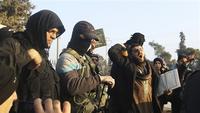-
Egypt: The Gaullist option (update)

On Sunday, Abdel Fattah el-Sisi was sworn in as Egypt’s president. On 3 July 2013, Sissi, then the commander of the Egyptian army, ousted President Mohammed Morsi, the leader of the Muslim Brotherhood. Egypt’s experience with former generals as heads of state is not reassuring. Sissi’s predecessors — Gamal Abdel Nasser (1956-70), Anwar Sadat (1970-81), and Hosni Mubarak (1981-2011) – did little to modernize Egypt and make it economically self-sufficient and politically stable. In 1958, when General Charles de Gaulle was called back to lead France, he conditioned his return on deep structural reforms, reforms which replaced the inherently ungovernable Fourth Republic with the stable and effective Fifth Republic. The United States should encourage President Sisi to consider de Gaulle’s example and use his authority and broad powers in ways that Nasser, Sadat, and Mubarak did not – to modernize Egypt and put it on a path leading to economic prosperity, political stability, and social cohesion.
-
-
Recession-related cost measures blamed for U.S. infrastructure lagging development
In an alarming fall, the United States is currently ranked 19th in the quality of its infrastructure, according to the World Economic Forum’s Global Competitiveness Report. Additionally, the American Society for Civil Engineers (ASCE) has given the country a D+ on its annual Infrastructure Report Card, arguing that $3.6 trillion is needed by 2020 for maintenance and upgrades.
-
-
States have consistently negotiated with terrorists to get back their citizens
The prisoner exchange with the Taliban has been met with criticism from some quarters, but, in fact, there is nothing unique about it, as the record shows that states around the world do negotiate with terrorists in order to get back their citizens or advance other goals. For example, since the early 1980s, Israel has freed nearly 8,000 Palestinian terrorists, and Palestinian and Arab prisoners, for fewer than twenty Israelis — soldiers and citizens who were held captive by Hezbolla and Hamas, and the bodies of several dead Israelis soldiers Hezbollah held as bargaining chips. Experts say that arguments can be made for or against theBergdahl exchange on its merits, but what cannot be argued is that the exchange should not have been made because it involved negotiations with terrorists.
-
-
Improved performance of facial recognition software
Who is that stranger in your social media photo? A click on the face reveals the name in seconds, almost as soon as you can identify your best friend. While that handy app is not quite ready for your smart phone, researchers are racing to develop reliable methods to match one person’s photo from millions of images for a variety of applications.
-
-
Expatriate Jihadists operating in Syria explain views, alarm West

More than 3,000 Westerners — among them 70 Americans — are believed by intelligence and counterterrorism officials to have traveled to Syria to join the war against the government of president Bashar al-Assad. Many of them engaged in what they believe is a holy war. This increase in the number of expatriate jihadists has led to a more aggressive response by security officials. In Britain, the Home Office stripped more than twenty individuals of their citizenship, and in just the first three months of this year there was a spike of more than forty “Syria-related arrests.”
-
-
Growing Jihadist threat demands new U.S. strategy to combat terrorism: RAND study
There is a growing terrorist threat to the United States from a rising number of Salafi-jihadist groups overseas, according to a new RAND study. Since 2010, there has been a 58 percent increase in the number of jihadist groups, a doubling of jihadist fighters, and a tripling of attacks by al Qaeda affiliates. The most significant threat to the United States, the report concludes, comes from terrorist groups operating in Yemen, Syria, Afghanistan, and Pakistan. There is a medium-level threat from terrorist groups operating in Somalia, Iraq, Libya, Lebanon, Nigeria, and Algeria. There is also a low-level threat from Salafi-jihadist groups operating in such countries as Tunisia, Mali, and Morocco.
-
-
Floridian is first known American suicide bomber in Syria

Floridian resident Moner Mohammad Abusalha is the first known American suicide bomber in Syria’s civil war. His death last May came as a surprise to U.S. counterterrorism agencies, which had lost track of him once he entered Syria. Some 12,000 foreign fighters have so far taken part in the Syria civil war — 3,000 of them from Western countries — and the inability to track these foreign fighters reflects a troubling blind spot for Western intelligence agencies. U.S. intelligence services are further hampered by legal restrictions which limit the monitoring of U.S. citizens and their communications.
-
-
With massive presence of foreign fighters, Syrian conflict resembles 1980s Afghanistan war
A new report by the Soufan Groupestimates that in just three years, 12,000 foreign fighters have traveled to Syria to support various rebel groups fighting the government of President Bashar al-Assad. U.S. and Israeli intelligence previously estimated that there were 7,000 foreign fighters in Syria at the start of 2014. Security experts are comparing the situation to the influx of foreign fighters into 1980s Soviet-occupied Afghanistan, which saw 10,000 foreign fighters battle the Soviets in the decade-long conflict that spawned al-Qaeda.
-
-
House passes measure requiring review of intelligence sharing practices
In the bill is the first legislation written in response to shortcomings revealed by the Boston marathon bombings,the House of Representatives last Friday approved a measure which requires the FBI, DHS, and the Office of the Director of National Intelligence to review their information sharing practices and report back to Congress within ninety days. Post-bombing investigation concluded that had intelligence agencies shared information on Tamerlan Tsarnaev, one of the suspects in the Boston Marathon bombings, prior to the incident, local law enforcement authorities may have been able to monitor Tsarnaev’s actions.
-
-
DHS relaxes employment rules for H-1B visa spouses
Last month DHS proposed two new rule changes which would allow H-4 dependent spouses of highly skilled immigrant workers who hold an H-1B, E, or L visas, to work legally in the United States. Current regulations prohibit work authorization for spouses of said visa holders. Some immigration advocates say the proposal is too narrow since getting employers to sponsor an H-1B visa applicant is already challenging.
-
-
Urgent need: Dirty bomb detection technology which does not rely on helium
It has taken 4.7 billion years for Earth to accumulate our helium reserves, but these reserves are dwindling at an alarming rate, and will be exhausted by around 2025. The supplies we have originated in the very slow radioactive alpha decay that occurs in rocks, and there is no chemical way to manufacture helium. The Department of Defense and other agencies use Helium-3 (He-3) to detect neutrons emanating from Special Nuclear Material (SNM) in order to counter the threat of nuclear-fueled explosives such as dirty bombs. Since the supply of He-3 is rapidly drying up, the Defense Threat Reduction Agency (DTRA) awarded a $2.8 million contract to Alion Science and Technology to develop a replacement technology which will detect neutrons without relying on He-3.
-
-
Federal oversight of ammonium nitrate exceedingly weak
A new Government Accountability Office(GAO) report found that the federal government has no way of fully knowing which chemical facilities stockammonium nitrate, a widely used fertilizer which was the cause of the explosion last year at a West, Texas fertilizer plan, which resulted in the death of fourteen people – and which was used by Timothy McVeigh in Oklahoma City twenty years ago. Poor data sharing with states, outdated federal policies, and numerous industry exemptions have contributed to a weak federal oversight. Without improved monitoring, regulators “will not know the extent to which dangerous conditions at some facilities may continue to exist,’’ the GAO report said.
-
-
Santa Monica to require retrofit of earthquake-vulnerable buildings
Last week, the Santa Monica City Councilauthorized city officials to hire engineering consultants to help identify buildings built before 1996 which could potentially be at risk in a major earthquake.. Owners of vulnerable buildings would be notified and provided recommendations on how to best retrofit their buildings to make them more resilient. Santa Monica will become the first city in California to require retrofitting for concrete, steel, and wood-frame. San Francisco last year required similar retrofitting, but only for wood apartment buildings.
-
-
China implements airport-like security checks at crowded train stations
China’s terrorism problem is worsening as a growing Uighur-led Islamist militancy has emerged in response to the Chinese government’s tough stance on ethnic problems in the Uighur homeland of Xinjiang in west China. In response to the growing security risks, Beijing passengers are now subject to security checks before their train commute.
-
-
NRC will not require nuclear plants to transfer waste to dry cask storage

Cooling pools on the grounds of U.S. nuclear plants, where toxic nuclear waste is stored, are near capacity, and in 2010 the plug was pulled on the Yucca Mountain centralized national nuclear waste repository, meaning that for the foreseeable future radioactive will continue to accumulate on site at the more than 100 nuclear power plants. Lawmakers called on the U.S. Nuclear Regulatory Commission (NRC) to require nuclear plants to hurry the transfer of spent fuel from the cooling pools to dry cask storage, which scientists consider much safer. The NRC, however, has decided that, at least for now, there is now reason to require nuclear plants to do so.
-
More headlines
The long view
What Does Netflix’s Drama “Adolescence” Tell Us About Incels and the Manosphere?
While Netflix’s psychological crime drama ‘Adolescence’ is a work of fiction, its themes offer insight into the very real and troubling rise of the incel and manosphere culture online.
A Shining Star in a Contentious Legacy: Could Marty Makary Be the Saving Grace of a Divisive Presidency?
While much of the Trump administration has sparked controversy, the FDA’s consumer-first reforms may be remembered as its brightest legacy. From AI-driven drug reviews to bans on artificial dyes, the FDA’s agenda resonates with the public in ways few Trump-era policies have.
The Center Can Hold — States’ Rights and Local Privilege in a Climate of Federal Overreach
As American institutions weather the storms of executive disruption, legal ambiguity, and polarized governance, we must reexamine what it means for “the center” to hold.
How to Reverse Nation’s Declining Birth Rate
Health experts urge policies that buoy families: lower living costs, affordable childcare, help for older parents who want more kids
Foundation for U.S. Breakthroughs Feels Shakier to Researchers
With each dollar of its grants, the National Institutes of Health —the world’s largest funder of biomedical research —generates, on average, $2.56 worth of economic activity across all 50 states. NIH grants also support more than 400,000 U.S. jobs, and have been a central force in establishing the country’s dominance in medical research. Waves of funding cuts and grant terminations under the second Trump administration are a threat to the U.S. status as driver of scientific progress, and to the nation’s economy.
The True Cost of Abandoning Science
“We now face a choice: to remain at the vanguard of scientific inquiry through sound investment, or to cede our leadership and watch others answer the big questions that have confounded humanity for millennia —and reap the rewards.”
